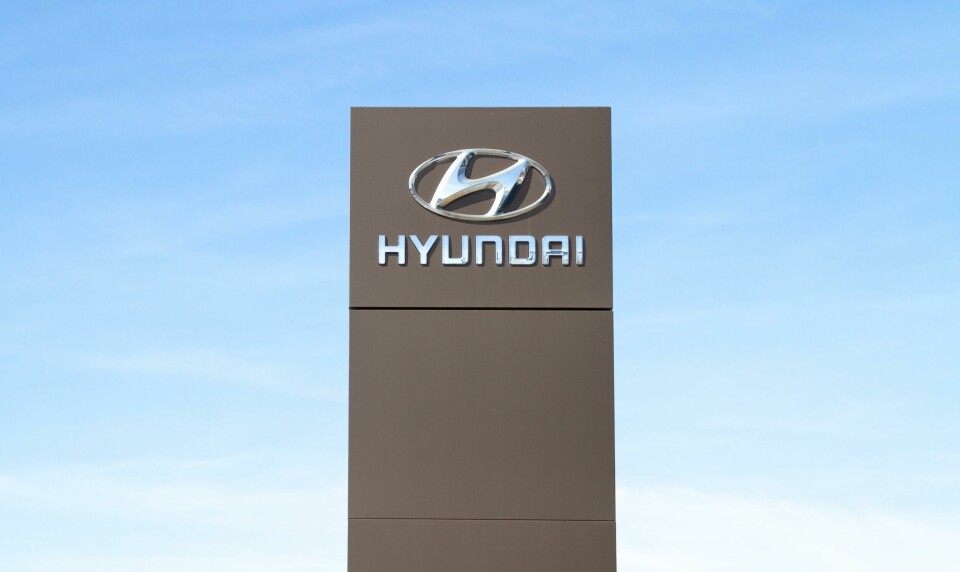US government sues Hyundai, suppliers in Alabama over alleged child labour
The US Department of Labour is suing Hyundai and its Alabama partners for alleged child labour violations, highlighting the need for strict compliance and ethical standards across the automotive industry

The US Department of Labour has initiated a legal challenge against Hyundai Motor Co., one of its tier suppliers, and a staffing firm, potentially finding labour violations within the automotive manufacturing industry. The case centers on the potential illegal use of child labour in Alabama, bringing to light the need for enhanced compliance and ethical standards across the automotive supply chain.
Federal lawsuit targets Hyundai and partners
On May 30, 2024, the Department of Labour filed a complaint in the US District Court for the Middle District of Alabama, seeking to stop three companies from employing children illegally and to require them to surrender profits derived from such practices. The defendants named are Korean automotive giant, Hyundai Motor Manufacturing Alabama LLC, parts supplier, SMART Alabama LLC, and staffing agency, Best Practice Service LLC. The complaint alleges that the companies jointly employed a 13-year-old child, who was found to be working up to 60 hours per week on an assembly line at the SMART Alabama plant in Luverne, which produces sheet metal components for Hyundai vehicles.
“A 13-year-old working on an assembly line in the United States of America shocks the conscience”
The Department of Labour’s Wage and Hour Division has said it discovered that from July 11, 2021, through February 1, 2022, the child worked extensive hours operating machinery that formed auto body parts. The investigation also claims to have uncovered that the child’s two siblings, aged 12 and 15, were similarly employed at the plant during this period and were therefore also not attending school.
Integrated operations and legal implications
The complaint states that the operations of SMART Alabama were “so integrated” with Hyundai’s main mƒanufacturing plant in Montgomery that they functioned as a “single employer for purposes of liability” under US labour law.

Solicitor of labour Seema Nanda remarked; “companies cannot escape liability by blaming suppliers or staffing companies for child labour violations when they are in fact also employers themselves.” The assertion emphasises the interconnected responsibilities within the supply chain, highlighting the inability of primary manufacturers to disavow liability for the actions of their suppliers.
Further, the complaint addresses violations of the “hot goods” provision of the Fair labour Standards Act, which prohibits the interstate commerce of goods produced in violation of child labour laws. This element of the case points to the broader implications for the entire automotive manufacturing industry, as it seeks to ensure that ethical and legal standards are uniformly maintained.
Hyundai’s response and automotive industry ramifications
Hyundai Motor Manufacturing Alabama operates a significant manufacturing facility in Montgomery, while SMART Alabama, now renamed ITAC Alabama, produces essential component parts. Best Practice Service LLC, based in Montgomery, supplied labour to SMART Alabama.
“Every automotive company is responsible for the labour-related actions of its suppliers across its entire supply chain”
Hyundai spokesperson Michael Stewart conveyed that the company had “worked over many months to thoroughly investigate this issue and took immediate and extensive remedial measures” to address the violations. Stewart added that Hyundai required its Alabama suppliers to conduct independent workforce audits and presented these findings to the Department of Labour.
Despite Hyundai’s efforts, the Department of Labour’s action represents “an unprecedented legal theory that would unfairly hold Hyundai accountable for the actions of its suppliers and set a concerning precedent for other automotive companies and manufacturers,” according to a company statement. However, the opposite argument would contend that the case illustrates the necessity for stringent oversight and accountability throughout the automotive supply chain to ensure that child labour violations are eradicated as not even a remote possibility.
“[The case represents] an unprecedented legal theory that would unfairly hold Hyundai accountable for the actions of its suppliers and set a concerning precedent for other automotive companies and manufacturers”

The broader context of child labour violations
According to sources, this case is not an isolated incident. A 2022 Reuters investigation revealed the widespread and illegal employment of migrant children in Alabama factories supplying parts to both Hyundai and its sister brand Kia. The report included the disappearance of a Guatemalan migrant child from her family’s home in Alabama, leading to the discovery of underage workers at the SMART Alabama plant.
The labour Department’s current action is part of a broader trend, as it has seen a surge in child labour violations nationwide. In fiscal year 2023 alone, the department investigated 955 cases involving 5,792 children, including hundreds employed in hazardous occupations.
Wage and Hour Division Administrator Jessica Looman expressed that, “a 13-year-old working on an assembly line in the United States of America shocks the conscience.” The sentiment reflects the broader societal and ethical implications of such violations, where they exist.
Industry call to action
The automotive manufacturing sector must take decisive action in response to these revelations. Ensuring the welfare of all workers, particularly vulnerable children, is paramount. This case serves as a stark reminder of the need for comprehensive audits, stringent compliance measures, and a commitment to ethical labour practices across all levels of the supply chain.
”The automotive industry must prioritise the total eradication of child labour across its ‘value’ chain”
Manufacturers must not only comply with legal standards but also foster a culture of responsibility and transparency. The findings from the Department of Labour’s investigation into Hyundai and its partners present an egregious case and a demand for the industry to reflect, reform and reinforce the principles of fair labour across the automotive value chain. The lawsuit against Hyundai Motor Co. and its affiliates is a significant moment in the ongoing effort to combat child labour, and one that must ensure its complete eradication from the automotive manufacturing industry. As this legal battle unfolds, it once again throws critical light on the imperative for rigorous compliance, ethical labour practices, and unwavering accountability across the automotive supply chain.
Just as sustainability scope considerations ensure that OEMs (as well as every other company) are responsible for the carbon-related actions of their suppliers across, and since all this is ultimately geared at the wellbeing of people, every automotive company is equally, if not more responsible for the labour-related actions of its suppliers across its entire supply chain. The automotive industry must prioritise the total eradication of child labour across its ‘value’ chain, and it must ensure the integrity and humanity of its production processes. The case continues.


